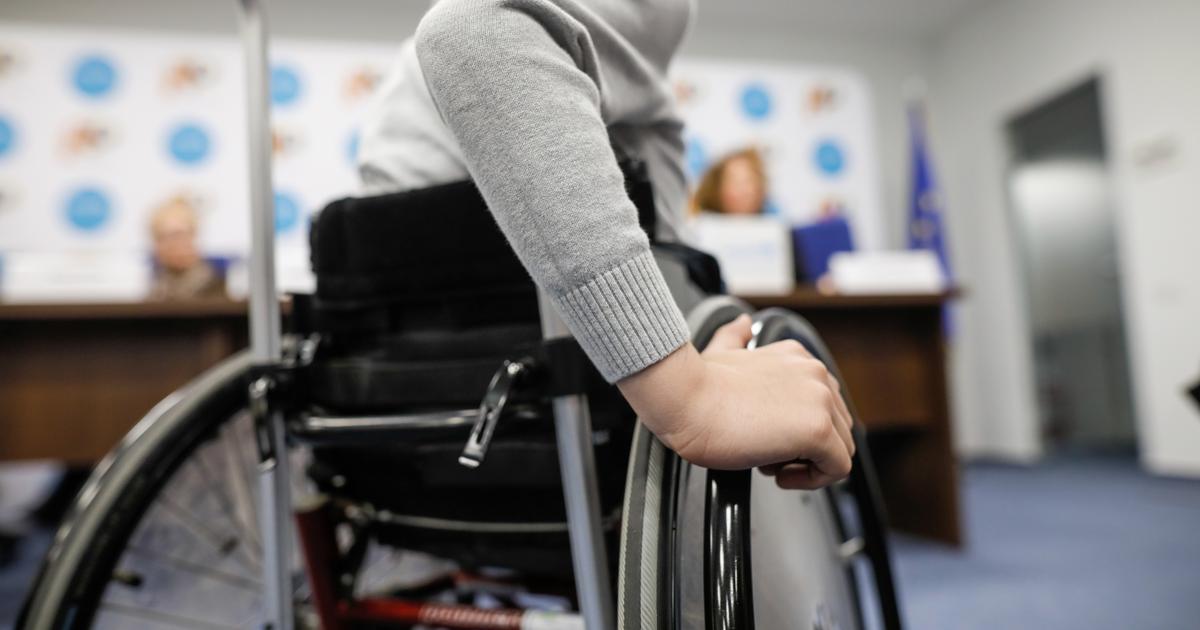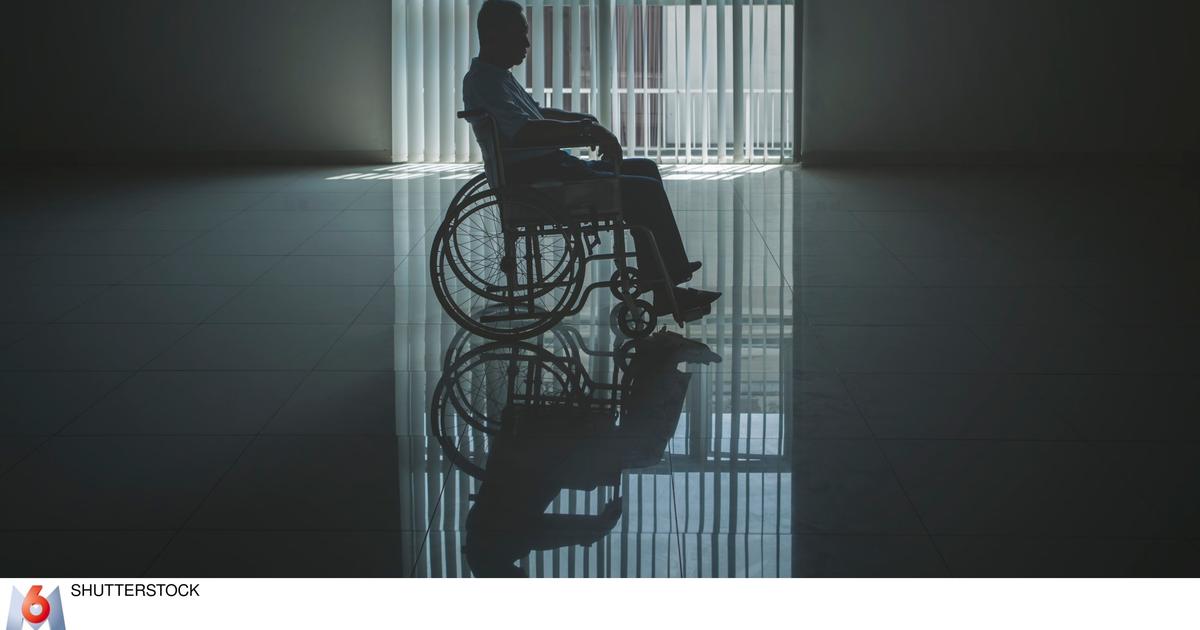Inclusion helpers from the elective course "Inclusive on the road" at the Gymnasium Dorfen take care of the Kunterbuntis, supported by supervising teacher Kathrin Lang (left). Forming the dough are (from 2nd from left): Nina Gohlke, Mimmi, Amélie Mehne, Mia Riedl and Konfetti Juliana. Markus Kroker (center) is watching. © Anderka
15 families from the district of Erding have joined forces to form "Motley Families". They all have children with disabilities. Dorfen high school students work as inclusion helpers.
Taufkirchen – Levi (12) is in goal, Max, who is the same age, takes a run and shoots, Levi holds the ball and beams. From afar, mom Tanja Kroker cheers: "Bravo Levi". Levi and Max, like six other boys and girls who are having fun this afternoon in the multi-generational house in Taufkirchen, are "special children". They all have a disability, most of them have mental limitations, one girl is in a wheelchair. Their families, a total of 15 from the Landreis Erding, one from outside, have joined forces under the association "Kunterbunte Familien". Tanja Kroker founded it with her husband Markus in 2011, shortly after the birth of her son Levi.
In the beginning, the families met once a month and exchanged ideas over coffee and cake. Since 2019, inclusion helpers have been present on these afternoons. These are students between the ages of 12 and 17 who attend the elective course "Inclusive on the Road" at the Gymnasium Dorfen, where Kroker is a music teacher. When the school applied for the "Inclusion School" seal, the teacher immediately thought of her association and launched the elective course.
In the meantime, she is supported by the inclusion officer Kathrin Lang, who teaches Latin and French at the grammar school. "We prepare games or handicrafts in advance. We think about sports activities for the children, always taking into account their age and disability. We also come up with alternatives in case the children get tired and want to withdraw from the group," explains Lang.
The inclusion helpers would receive up-to-date information about the "Kunterbuntis" in advance. "Our students are gigantic," praises the inclusion officer. During the two-hour club meetings, the young people each look after a colorful child or several confettis, as the healthy siblings are called.
Shortly after the birth of Levi, Tanja Kroker founded the association "Kunterbunte Familien". © Anderka
It smells of fresh yeast dough from the kitchen of the multi-generational house. Supervising teacher Lang, high school students Nina Gohlke, Amélie Mehne and Mia Riedl, together with Mimmi (14), Eva (10), Anne (12), Max (12), Zoey (10) and confetti Juliana, form beetles, flowers, hearts and rings from the dough. The artworks are layered on a baking sheet and placed in the oven. Until they are golden brown, the children romp around in the garden with their inclusion helpers. One of them is Marc Galizki-Seisenberger. The 15-year-old from Dorfen, who plays soccer for Wacker-Burghausen, is particularly popular with the boys. But they are also with him: "They radiate a zest for life, that's contagious," he says, "they don't radiate any negative energy at all."
This is probably mainly due to the fact that all Kunterbuntis, as their parents confirm in unison, love the inclusive afternoon. Gabi Bichlmaier says with a laugh: "We are always there much too early because Eva is so looking forward to the meetings and is already looking forward to them." Bichlmaier hasn't been with the club that long, but he's enjoying it very much: "The parents are all open and we've been given a very warm welcome here."
"It's just," says Alexandra Lindenau, Max's mother. She has been with us since the company was founded, as has Susanne Kuchta, who even travels from Wasserburg with her daughter Anne (12) because she doesn't want to miss the contact.
It is good for the parents to exchange ideas for two hours undisturbed and "not to have to explain themselves", everyone emphasizes. They really appreciate the "super commitment" of the inclusion helpers. However, Kroker also emphasizes that this lived inclusion is a win-win situation for both sides. "Our children grow up more freely when they come into contact with children without disabilities, but the inclusion helpers also learn a lot, for example patience, perseverance and consideration."
0
Also Read
Erding: David Ritter becomes Herbstfest host
READ
Defendant annoys court: A weekend of leisure detention
READ
Anger over parking tickets at the Taufkirchen cemetery
READ
50-metre-wide warning sign in the cornfield
READ
Monika Gruber turns demonstration against "heating ideology" into a major event – AfD calls for participation
READ
Fancy a voyage of discovery?
My Area
Bianca Noske, Mimmi's mother, enjoys being able to switch off from time to time. "Our children simply have more needs," she says. Tina and Thomas Mitschke from Dorfen are there with Lisa (7) and sister Lea, who now acts as an inclusion helper, "but not for her own sister," says Tina Mitschke with a laugh. Levi's older brother Silas also lends a hand. It is also not always easy for siblings to live with a disabled sibling. They would have to cut back a lot, Kuchta knows.
At the club meetings, the parents exchange tips, especially with regard to the procurement of aids, rehabilitation or official applications. And a discussion quickly unfolds about the lack of willingness to include in Germany. "We are in penultimate place in Europe," says Kuchta, and Bavaria is at the bottom of the list within Germany. "In the district of Erding, there is not even a counseling center for families with disabled children," complains Tanja Kroker. In 2016, the Bundestag enshrined in law the Act to Strengthen the Participation and Self-Determination of People with Disabilities, but its implementation is still in its infancy. "Everyone blames it on the other," complains Kuchta, adding: "It's just not enough to just build a ramp."








